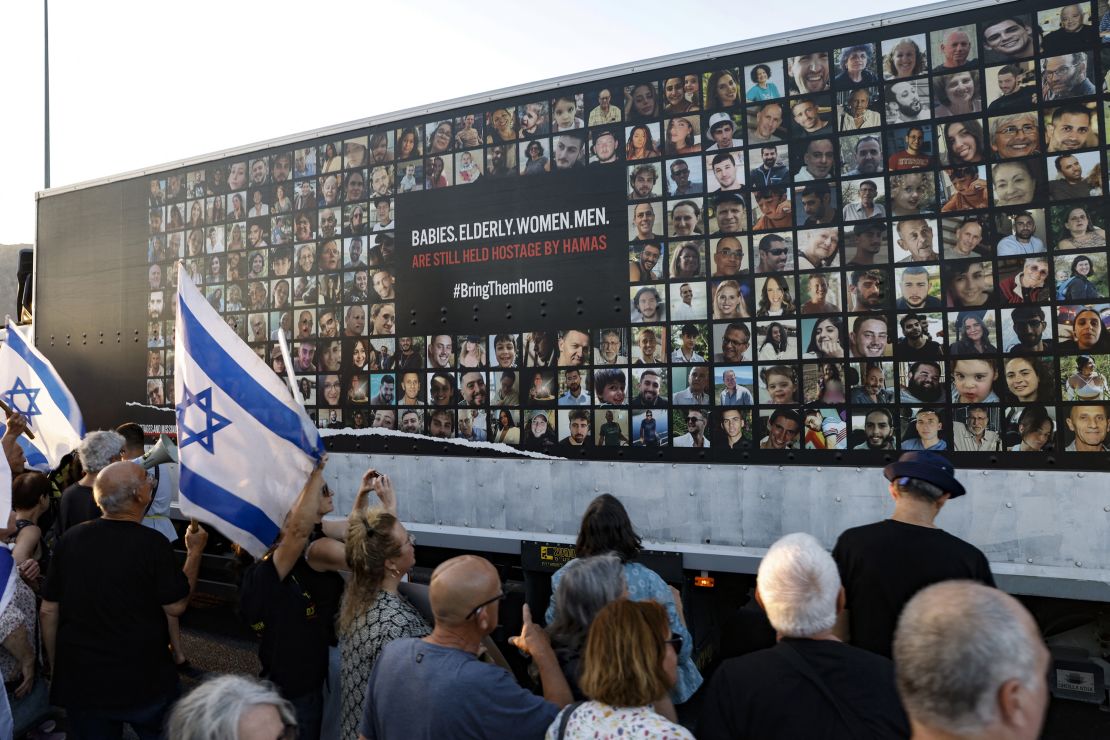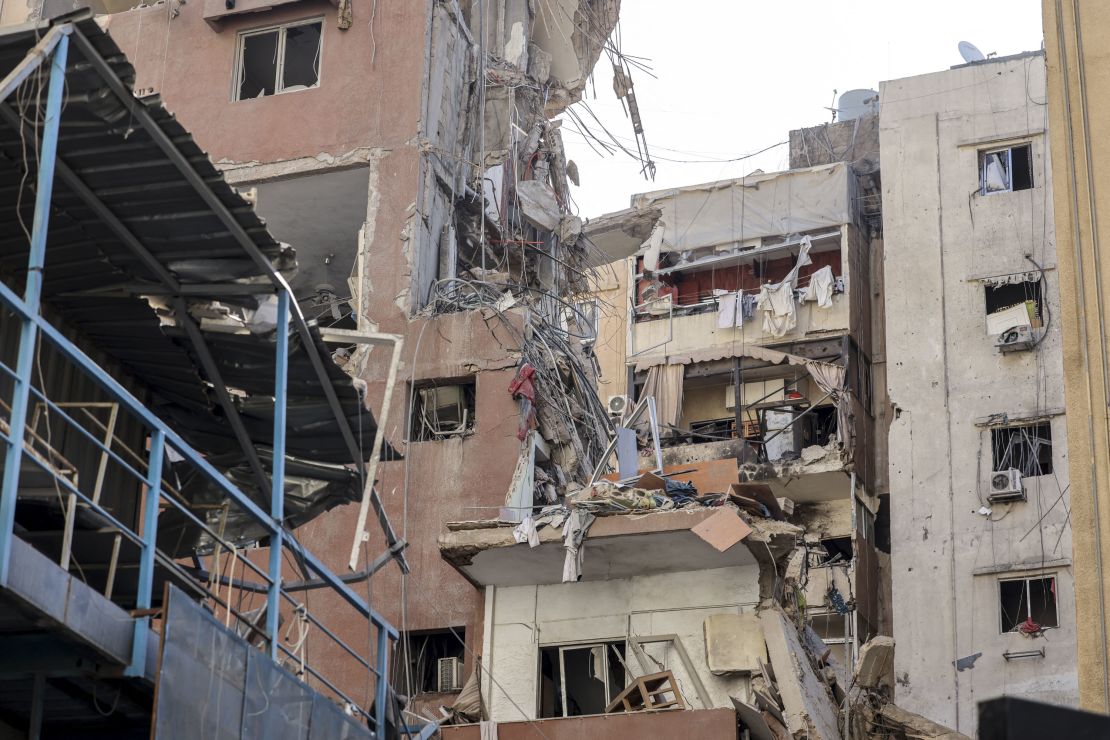Editor’s Note: A version of this story appears in CNN’s Meanwhile in the Middle East newsletter, a three-times-a-week look inside the region’s biggest stories. Sign up here.
CNN
—
The assassination of the political leader of Hamas has plunged the Middle East into fresh crisis and dented already slim hopes of an end to the war between Israel and the militant group that rules Gaza anytime soon.
Hamas on Wednesday said Israel killed its political leader, Ismail Haniyeh, in Tehran, Iran, hours after Israel claimed a strike on the Lebanese capital Beirut that killed a senior Hezbollah commander who it blamed for a deadly attack in the Israeli-occupied Golan Heights over the weekend. Israel has neither confirmed nor denied responsibility for Haniyeh’s killing.
Experts say the assassinations throw an ominous shadow on efforts to procure a ceasefire-hostage deal in Gaza, as well as hopes of de-escalation between Israel and its Iran-backed rivals in the region.
Here’s what the killing of the Hamas and Hezbollah leaders means for the Gaza war and the region.
Future of ceasefire talks unclear
Months of negotiations on a deal to end the war in Gaza and free the remaining Israeli hostages held by Hamas had already hit repeated roadblocks before Haniyeh, a key player in the talks, was killed on Tuesday night.
As recently as early July, Haniyeh was in touch with mediators in Qatar and Egypt to discuss ideas on ending the war, sparking some hope that the two sides could be on the brink of a framework agreement.
All of that could now be thrown up in the air by his death.
A source with knowledge of the negotiations told CNN Wednesday that Haniyeh’s assassination could “complicate mediation talks,” as he had been “instrumental” to their progress. The source said Haniyeh was a “key decision-maker,” along with Hamas’ military leader in Gaza, Yahya Sinwar,
“He was someone who saw the value of a deal and was instrumental to getting certain breakthroughs in the talks,” the source said, adding that “at this stage, it’s unclear what the effect will be on ceasefire talks.”
Qatar’s Prime Minister Mohammed bin Abdulrahman Al-Thani, a key mediator in the Israel-Hamas talks, wrote on X: “Political assassinations and continued targeting of civilians in Gaza while talks continue leads us to ask, how can mediation succeed when one party assassinates the negotiator on the other side?”
Qatar, which has helped release some of the Israeli hostages, sheltered the Hamas leader before his death, and the group’s political bureau has been based in its capital Doha since 2012.
Questions will also be asked about the calculations of Israeli Prime Minister Benjamin Netanyahu, who many observers – including families of the hostages – have accused of deliberately stalling on negotiations and dragging out the war to safeguard his own political survival.
“Netanyahu has systematically sabotaged ceasefire talks because ending the war will likely end his political career,” said Trita Parsi of the Quincy Institute, a US-based foreign policy think tank, in a post on X. “The assassination buys Netanyahu several weeks, if not months, in which there will be no serious expectation of a ceasefire deal.”

Gershon Baskin, a former Israeli hostage negotiator who once acted as a channel to Hamas, noted that negotiations were already deadlocked even before the assassination of Haniyeh.
Now, Baskin said, it is unclear how much longer Qatari and Egyptian mediators will allow themselves “to be played by Israel and Hamas,” adding that it may be time for the mediators to put a deal on the table and ask parties to “take it or leave it.”
“And if they leave it, perhaps it’s time for them to leave the parties to themselves,” Baskin told CNN.
A faltered negotiation process also extends the risk to the lives of the remaining hostages in Gaza.
The Hostages Families Forum said Wednesday that “true achievement” in the war can only be realized with the release of all hostages still in captivity, saying they “implore the Israeli government and global leaders to decisively advance negotiations.”
“Time is of the essence,” the Forum said in a statement. “This is the time for a deal.”
There are 111 hostages still in Gaza, including 39 believed to be dead, according to data from Netanyahu’s office. Their families have repeatedly slammed Netanyahu for failing to secure their release.
No respite for the suffering in Gaza
Without a ceasefire, Gaza’s besieged population will find no respite from the war, which has so far killed more than 39,000 people, according to the health ministry in the strip. Swathes of the territory have been flattened, and a humanitarian crisis is rapidly spiraling out of control.
The war, which Israel launched in response to Hamas’ October 7 attacks that killed 1,200 people, has also displaced almost all of Gaza’s population of 2 million, with 86% of the territory now under Israeli evacuation orders.
Qatar’s foreign ministry on Wednesday said Haniyeh’s killing “would lead to the region sliding into a cycle of chaos and undermine the chances of peace.”

Egypt, a key mediator in the conflict but whose ties with Israel have been strained since October 7, had condemned what it called “Israel’s dangerous policy of escalation” and warned against “the nonsense policy of assassination and violation of the sovereignty of states.”
In a statement, Egypt said the two killings risk “igniting” confrontation in the region.
US Secretary of State Antony Blinken on Wednesday said the United States was “not aware of or involved in” Haniyeh’s killing and that the Biden administration had been working “from day one” for a ceasefire to prevent the conflict from spreading to other regions.
HA Hellyer, scholar at the Carnegie Endowment for International Peace and the Royal United Services Institute for Defense and Security Studies in London, said that unless there is an active effort to cool tensions in the region, “escalation will happen by, unfortunately, default.”
“The United States has not been willing to use the leverage it actually has on Israel… in order to force Israel into a serious negotiation position,” Hellyer told CNN’s Becky Anderson. “This isn’t sustainable.”
CNN’s Mostafa Salem contributed to this report.









